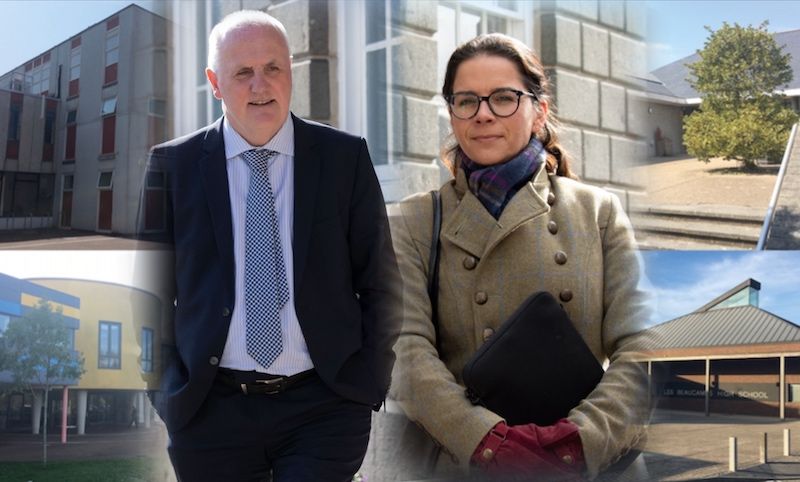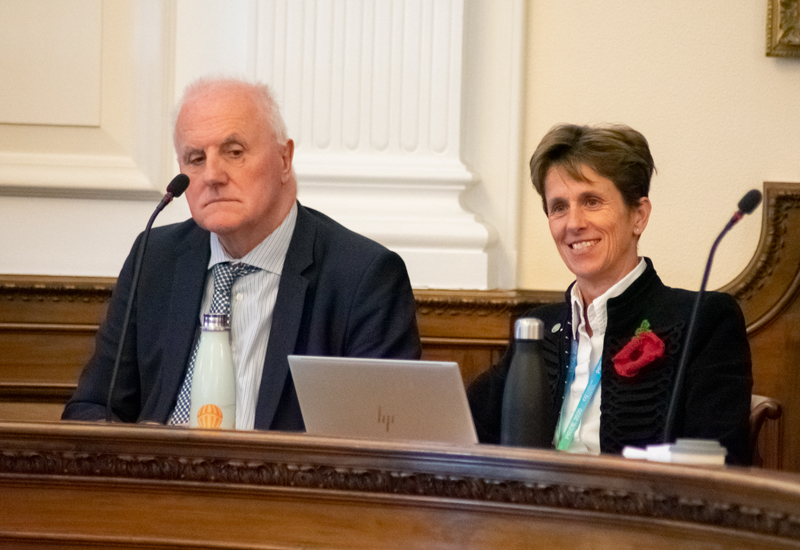


The States' previously-agreed education policies are standing in the way of finding the "very best way of delivering secondary education" in a non-selective environment, according to the President of ESC, as she received notable political backing from Policy & Resources.
The Education, Sport & Culture Committee has announced its intention to submit its policy letter on the future of secondary and post-16 education on 10 May 2021.
The Committee told Express earlier this week that it will soon release further information about the way it intends to "finalise" the review of educational models, saying that the terms stipulated by the 'pause and review' are unhelpful and obstructive.
Committee President Andrea Dudley-Owen has pledged to do that before the States meets in March to debate the Government Work Plan. During that debate, the Policy & Resources Committee will ask the States to rescind 135 previous States resolutions, including a number relating to the future of secondary education.

Pictured: Policy & Resources asked all States committees to identify extant resolutions that had either "been superseded or did not align with this Assembly’s policy objectives."
"Whilst there is still work to do before the Committee is in a position to finalise our recommendations to the States, we are making good progress," said Deputy Dudley-Owen. "We know there is a huge desire for this long-running issue to be resolved urgently."
She continued: "Earlier debates in respect of secondary and post-16 education have been high profile and have been the subject of multiple policy letters by various iterations of the Committee over a series of political terms.
"Given this fact, unlike in some other areas where the rescission of resolutions might readily leave a policy vacuum due to a previous absence of political decision making in that area, if successful, the proposed rescissions will return us to the policy position of being able to find the very best way of delivering secondary education in a non-selective environment.
"This is what we are committed to doing, not least because of the strong indication from the ballot box that this is what the electorate has called for."
Pictured: "We wanted to be transparent about our desire for some previous resolutions relating to secondary education to be rescinded, so went public with our plans prior to the release of the Government Work Plan" - ESC President Andrea Dudley-Owen.
In a joint press release, Policy & Resources Committee President Peter Ferbrache endorsed ESC's judgement that the education review will be "better served" by rescinding previous resolutions.
"The Government Work Plan has been led by our Committee and part of it focuses on reducing the inordinate amount of extant resolutions that States Committees are required to work to.
"While I have no doubt that each was generated with the best of intentions, the fact is this is a new Assembly with a desire to deliver action in this term.
"The Committee for Education, Sport & Culture has done exactly what was asked of it, and of course it will now be for the States to decide if they agree with the Committee that its work on secondary education will be better served if these resolutions are rescinded."

Pictured: P&R President Peter Ferbrache, pictured here with his Vice-President Heidi Soulsby, set out his support for Education's proposals in a joint policy letter.
Earlier this month, Deputy Dudley-Owen's responses to questions about the review in the States sparked debate among some of her political colleagues.
"This Committee is intent on being open with all of our key stakeholders, but we must be allowed time to complete the work," she said.
"We will shortly be in a position to explain in more detail the guiding principles we have developed, taking into account the extensive feedback from staff via a survey and workshops last year and advice from the senior educationalists that support us, and what this means for secondary education policy and the operational models that remain the focus of our work.
"It is crucial that we continue to engage with staff and union colleagues so they hear from us directly before we explain this publicly, which is what we intend to do very soon."
Comments
Comments on this story express the views of the commentator only, not Bailiwick Publishing. We are unable to guarantee the accuracy of any of those comments.